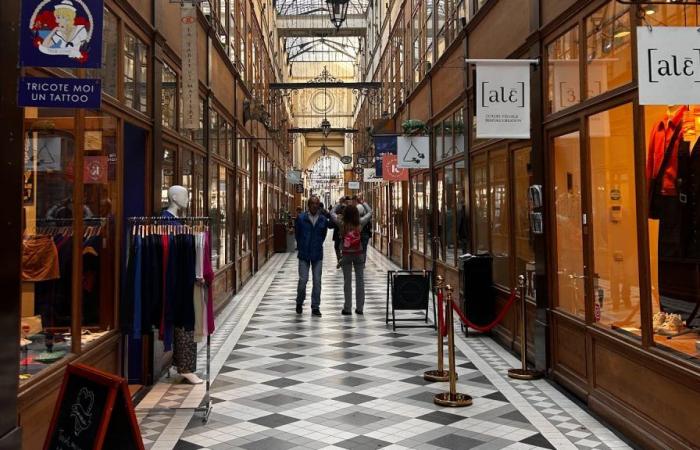
Inaugurated in 2016, “Bitcoin Boulevard” saw dozens of passers-by eager to use their cryptocurrencies in their daily lives. But, since the price surge, transactions have become increasingly rare. Reporting.
From old lamps to clocks, from stools to coat racks… At Rickshaw, Passage du Grand-Cerf in the 2nd arrondissement of Paris, everything is payable in bitcoin. Gaël Ouaki, store manager, has accepted this method of payment for several years. This technology enthusiast, who considers himself “avant-garde”, has been interested in Bitcoin since 2014 and created “Bitcoin Boulevard”, this street in Paris where merchants offer their customers to pay for their purchases in cryptocurrency.
From November 2016, he had led, with Jacques Favier, another enthusiast of the Bitcoin ecosystem, around twenty merchants from the Passage du Grand Cerf, who had been seduced by this promising new means of payment. Their motivation? Attract younger, tech-savvy and particularly foreign customers. Once publicized, the place saw a few dozen cryptophiles passing by eager to try their hand at bitcoin transactions. But six years later, many merchants have left the passage and crypto payments are becoming increasingly rare…
“I have not had any cryptocurrency transactions in 2024 at the moment,” says Gaël Ouaki. “I had a lot of payments for two or three years but today not at all,” he says. One of the reasons that can explain this sudden stop is the exponential increase in the price of bitcoin and other cryptocurrencies in recent years. In December 2020, for example, bitcoin was worth 15,000 euros (compared to 62,000 euros on October 18), ethereum 500 euros (compared to 2,400 euros on October 18), BNB 24 euros (compared to 548 euros on October 16), and solana was not even worth 2 euros, compared to 141 euros today. This price explosion pushes holders to keep their cryptos for several years (“hold” in English) and to hope that their assets will continue to increase.
Other stores followed suit
When you stroll through this passage connecting rue Saint-Denis to rue Dussoubs, orange stickers reading “We accept Bitcoin” are affixed to certain storefronts. At Khara Tuki, Fanny Roux de Badilhac has accepted bitcoin since the start of the adventure. Unlike Gaël Ouaki, this year the merchant encountered customers wanting to use their cryptocurrency. “I had two people who paid in bitcoin in 2024,” says Fanny Roux de Badilhac. But his customers weren’t really “ordinary”. “These are people very engaged in the ecosystem who wanted to spend their cryptos,” explains the manager. That day, her customers had bought a perfume and a piece of jewelry, for an amount reaching “not far from 100 euros,” she said.
Across the street, Marie Wang, a jewelry seller with her store Dear, no longer accepts this method of payment. “I accepted a few years ago but no one asks me to pay in cryptocurrencies anymore. So I made the decision to stop accepting them,” she confides. Marie Wang, however, is not closed to accepting cryptocurrencies again if she sees growing demand from customers.
Same story with Aymeric Petitdidier, optician at the store “Pour vos belles yeux”. He indicates that he has “never had a transaction in cryptocurrencies” and that he does not accept them but “that he would be ready to accept them if customers came”.
How to pay with cryptocurrencies
When a customer wants to pay in bitcoins, the seller will enter the purchase amount on a special application. This will generate a QR Code that the buyer must flash. At this time, the customer confirms the amount and then validates the transaction. In a few seconds, the seller is automatically credited in cryptocurrencies or euros to his bank account if he has chosen an immediate automatic bank transfer. “This is really an additional payment solution,” explains Fanny Roux de Badilhac. Same process for Gaël Ouaki, who accepts payments in cryptocurrencies using a special payment terminal.
If French holders of cryptocurrencies no longer wander the Passage du Grand-Cerf for the moment, this does not mean that they are no longer interested in this sector. According to the latest Adan study, carried out in partnership with KPMG and the Ipsos polling institute and published in March 2024, “12% of French people (aged 18 and over, Editor’s note) own cryptocurrencies” at the start of 2024 (date as of which the survey was carried out).





